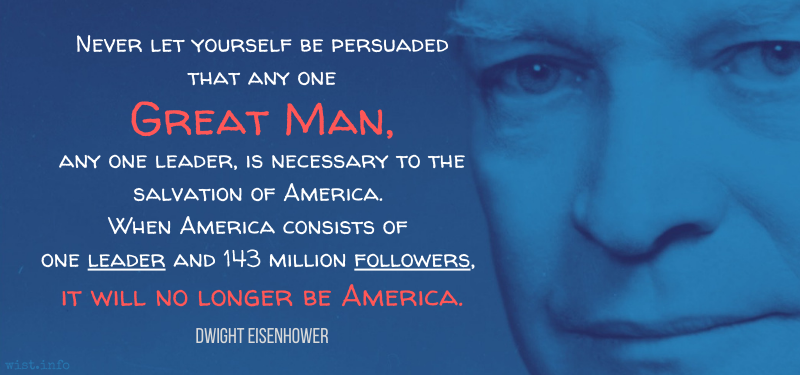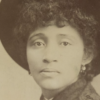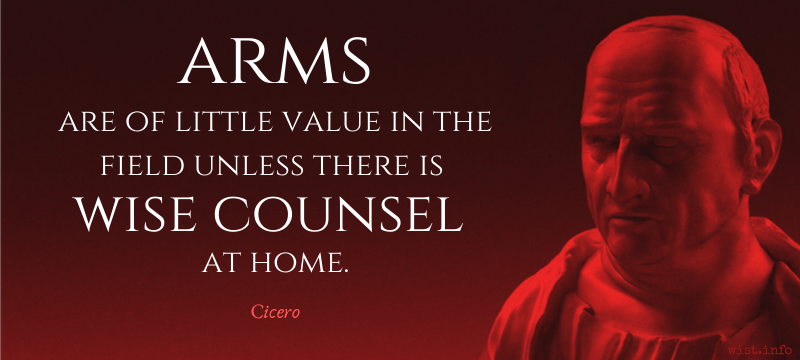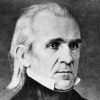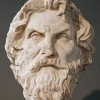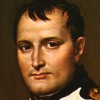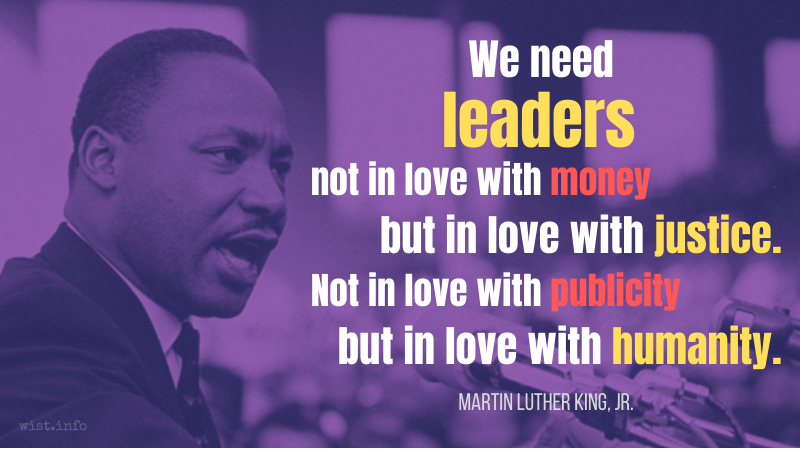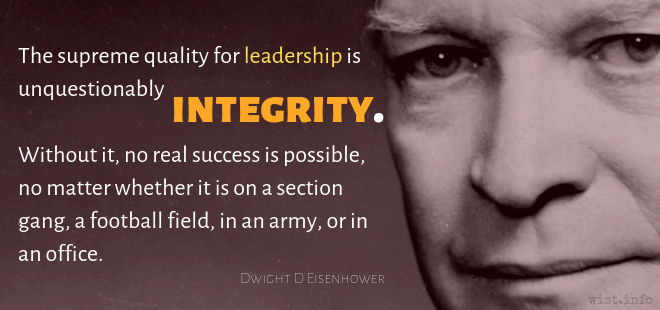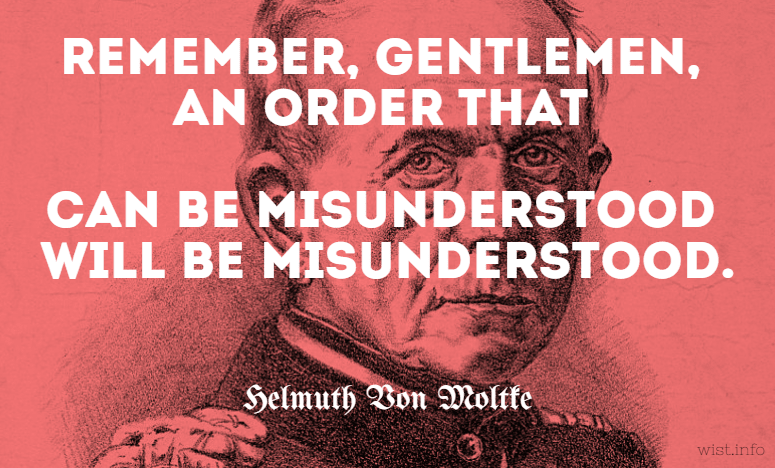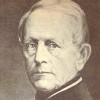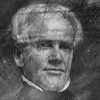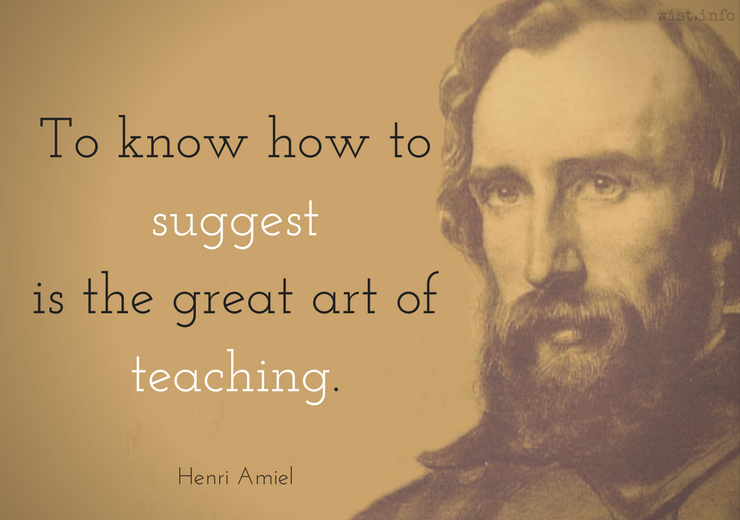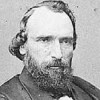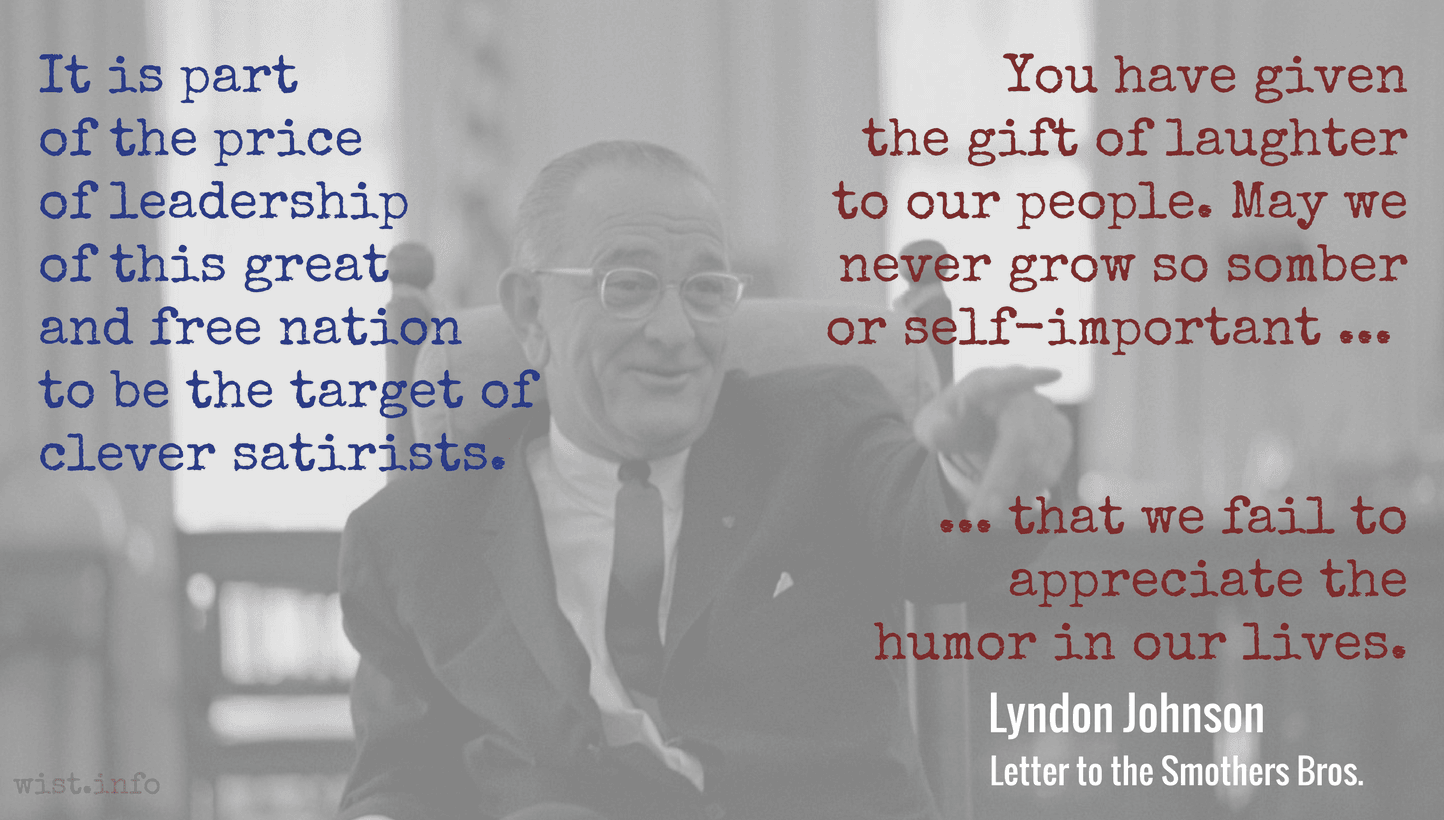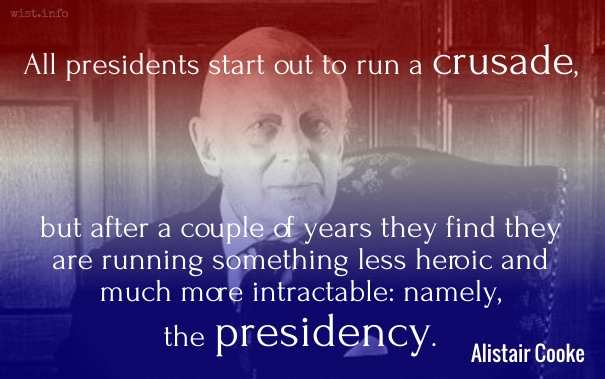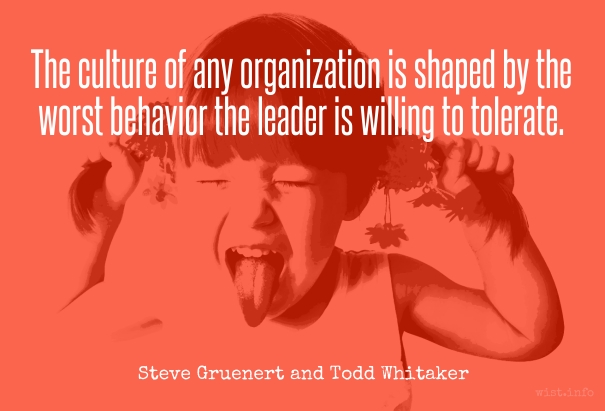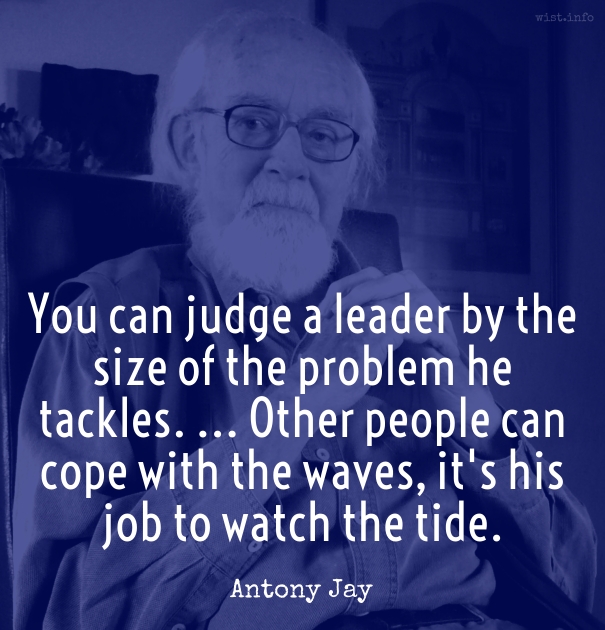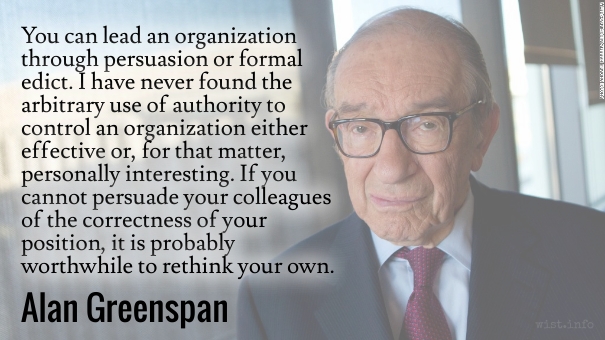It is not the whole ov our duty tew foller the examples ov good men, but tew leave behind us sum decent tracks for others tew foller.
[It is not the whole of our duty to follow the examples of good men, but to leave behind us some decent tracks for others to follow.]
Josh Billings (1818-1885) American humorist, aphorist [pseud. of Henry Wheeler Shaw]
Everybody’s Friend, Or; Josh Billing’s Encyclopedia and Proverbial Philosophy of Wit and Humor, ch. 132 “Affurisms: Chips” (1874)
(Source)
Quotations about:
leadership
Note not all quotations have been tagged, so Search may find additional quotes on this topic.
I have heard people say we should be strong so that if there is another war we can win it, then show the world the right way to live afterward. This is old stuff, and it is poppycock. Our behavior hardly qualifies us as world leaders. Ours is one of the most conservative governments in the world today, and one of the most bumbling. We have more provincialism and bigotry and superstition and prejudice per square mile than almost any other nation. We like to think of ourselves as a young, progressive country, but, while we do have energy, we have become smug and self-satisfied.
The power of Thought, — the magic of the Mind!
George Gordon, Lord Byron (1788-1824) English poet
The Corsair, Canto 1, st. 8, l. 184 (1814)
(Source)
The abilities -- plus success -- that Conrad uses to control his crew.
A statesman is a man that can do what the politician would like to do but can’t, because he is afraid of not being elected.
FIRST OFFICER: That’s a brave fellow, but he’s vengeance proud and loves not the common people.
SECOND OFFICER: ’Faith, there hath been many great men that have flattered the people who ne’er loved them; and there be many that they have loved they know not wherefore; so that, if they love they know not why, they hate upon no better a ground. Therefore, for Coriolanus neither to care whether they love or hate him manifests the true knowledge he has in their disposition and, out of his noble carelessness, lets them plainly see ’t.
William Shakespeare (1564-1616) English dramatist and poet
Coriolanus, Act 2, sc. 2, l. 5ff (2.2.5-15) (c. 1608)
(Source)
Convictions no doubt have to be modified or expanded to meet changing conditions […] but to be a reliable political leader sooner or later your anchors must hold fast where other men’s drag.
Margot Asquith (1864-1945) British socialite, author, wit [Emma Margaret Asquith, Countess Oxford and Asquith; Margot Oxford; née Tennant]
More or Less about Myself, ch. 3 (1934)
(Source)
Never let yourself be persuaded that any one Great Man, any one leader, is necessary to the salvation of America. When America consists of one leader and 143,000,000 followers, it will no longer be America. Truly American leadership is not of any one man. It is of multitudes of men — and women.
Dwight David Eisenhower (1890-1969) American general, US President (1953-61)
“An Open Letter to America’s Students,” Reader’s Digest (1948-10)
(Source)
Quoted in different locations with various numbers for the US population. The letter was written while Eisenhower was President of Columbia University.
If the mind is to emerge unscathed from this relentless struggle with the unforeseen, two qualities are indispensable: first, an intellect that, even in the darkest hour, retains some glimmerings of the inner light which leads to truth; and second, the courage to follow this faint light wherever it may lead.
[So sind ihm zwei Eigenschaften unentbehrlich: einmal ein Verstand, der auch in dieser gesteigerten Dunkelheit nicht ohne einige Spuren des inneren Lichts ist, die ihn zur Wahrheit führen, und dann Mut, diesem schwachen Lichte zu folgen.]
Karl von Clausewitz (1780-1831) Prussian soldier, historian, military theorist
On War [Vom Kriege], Book 1, ch. 3 “On Military Genius [Der Kriegerische Genius]” (1.3) (1832) [tr. Howard & Paret (1976)]
(Source)
(Source (German)). Alternate translations:
Now, if it is to get safely through this perpetual conflict with the unexpected, two qualities are indispensable: in the first place an understanding which, even in the midst of this intense obscurity, is not without some traces of inner light, which lead to the truth, and then the courage to follow this faint light.
[tr. Graham (1873)]
Now if it is to get safely through this continual conflict with the unexpected, two qualities are indispensable: in the first place, an intellect which even in the midst of this intensified obscurity is not without some traces of inner light which lead to the truth, and next, courage to follow this faint light.
[tr. Jolles (1943)]
Governments never lead; they follow progress. When the prison, stake or scaffold can no longer silence the voice of the protesting minority, progress moves on a step, but not until then.
Lucy Parsons (1851-1942) American labor organizer, anarchist, orator [a.k.a. Lucy Gonzalez]
“The Principles of Anarchism,” lecture (1905)
(Source)
Smiting enemies has always been so admired that, unlike medicine or archaeology, it entitled its successful practitioners to become kings, emperors, and presidents of the United States like Washington, Jackson, William Henry Harrison, Taylor, Grant, and Eisenhower.
These executives, who have risen to the top, have come to be responsible trustees, impartial umpires, and expert brokers for a plurality of economic interests, including those of all the millions of small property holders who hold stock in the great American enterprises, but also the wage workers and the consumers who benefit from the great flow of goods and services. These executives, it is held, are responsible for the refrigerator in the kitchen and the automobile in the garage — as well as all the planes and bombs that now guard Americans from instant peril. […] Full of the know-how that made America great; efficient, straightforward, honest, the chief executives, it is often said, ought really to be allowed to run the government, for if only such men were in charge there would be no waste, no corruption, no infiltration.
C. Wright Mills (1916-1962) American sociologist, academic, author [Charles Wright Mills]
The Power Elite, ch. 6 (1956)
(Source)
We will lead not merely by the example of our power but by the power of our example.
Joe Biden (b. 1942) American politician, US President (2021- ) [Joseph Robinette Biden Jr.]
Inaugural Address (20 Jan 2021)
(Source)
Regarding American foreign relations.
For arms are of little value in the field unless there is wise counsel at home.
[Parvi enim sunt foris arma, nisi est consilium domi.]
Marcus Tullius Cicero (106-43 BC) Roman orator, statesman, philosopher
De Officiis [On Duties; On Moral Duty; The Offices], Book 1, ch. 22 (1.22) / sec. 76 (44 BC) [tr. Miller (1913)]
(Source)
Peabody comments, "A verse, quoted probably from some lost comedy, the measure being one employed by the comic poets." None of the other translators call this out or show the text as separate except Peabody.
(Source (Latin)). Alternate translations:
For armies can signify but little abroad, unless there be counsel and wise management at home.
[tr. Cockman (1699)]
Armies abroad avail little, unless there be wisdom at home.
[tr. McCartney (1798)]
An army abroad is but of small service unless there be a wise administration at home.
[tr. Edmonds (1865)]
Valor abroad is naught, unless at home be wisdom.
[tr. Peabody (1883)]
An army in the field is nothing without wisdom at home.
[tr. Gardiner (1899)]
For weapons have small value abroad unless there is good advice at home.
[tr. Edinger (1974)]
The public does not like you to mislead or represent yourself to be something you’re not. And the other thing that the public really does like is the self-examination to say, you know, I’m not perfect. I’m just like you. They don’t ask their public officials to be perfect. They just ask them to be smart, truthful, honest, and show a modicum of good sense.
Ann Richards (1933-2006) American politician [Dorothy Ann Willis Richards]
“Ann Richards Discusses Texas, Politics and Humor,” Larry King Live, CNN (23 Jan 2001)
(Source)
But, of all motives, none is better adapted to secure influence and hold it fast than love; nothing is more foreign to that end than fear. […] For fear is but a poor safeguard of lasting power; while affection, on the other hand, may be trusted to keep it safe for ever.
[Omnium autem rerum nec aptius est quicquam ad opes tuendas ac tenendas quam diligi nec alienius quam timeri. … Malus enim est custos diuturnitatis metus contraque benivolentia fidelis vel ad perpetuitatem.]
Marcus Tullius Cicero (106-43 BC) Roman orator, statesman, philosopher
De Officiis [On Duties; On Moral Duty; The Offices], Book 2, ch. 7 (2.7) / sec. 23 (44 BC) [tr. Miller (1913)]
(Source)
Discussing the fate of tyrants such as Julius Caesar. Original Latin. Alternate translations:
Now of all those methods, which tend to the advancement and maintenance of our interest, there is none more proper and convenient than love, and none more improper and inconvenient than fear. [...] For obedience, proceeding from fear, cannot possibly be lasting; whereas that which is the effect of love will be faithful for ever.
[tr. Cockman (1699)]
Of all means there is none better fitted for supporting and retaining our influence than to be loved; or more foreign to it, than to be feared. [...] Fear is a false and short-lived security, but the love of men is faithful and lasting.
[tr. McCartney (1798)]
Now, of all things there is none more adapted for supporting and retaining our influence than to be loved, nor more prejudicial than to be feared. [...] For fear is but a bad guardian to permanency, whereas affection is faithful even to perpetuity.
[tr. Edmonds (1865)]
But of all things nothing tends so much to the guarding and keeping of resources as to be the object of affection; nor is anything more foreign to that end than to be the object of fear. [...] For fear is but a poor guardian for permanent possession, and, on the other hand, good will is faithful so long as there can be need of its loyalty.
[tr. Peabody (1883)]
Of all the means of maintaining power, love is the best, the worst fear. [...] Fear is a poor guardian of lasting power; love will keep it safe for ever.
[tr. Gardiner (1899)]
However, among all qualities there is no more appropriate way to preserve and defend one's resources than to be well-liked, nothing less appropriate than to be feared. [...] To arouse fear in others is a bad guarantee of longevity, while on the other hand good will is faithful unto eternity.
[tr. Edinger (1974)]
I’ve always said that in politics, your enemies can’t hurt you, but your friends will kill you.
Ann Richards (1933-2006) American politician [Dorothy Ann Willis Richards]
“Sadder but Wiser,” interview with Paul Burka, Texas Monthly (Apr 1994)
(Source)
Referring to appointees whose failures had caused her political problems as governor.
Though great in all, thou seem’st averse to lend
Impartial audience to a faithful friend:
To gods and men thy matchless worth is known,
And every art of glorious war thy own;
But in cool thought and counsel to excel,
How widely differs this from warring well!
Content with what the bounteous gods have given,
Seek not alone to engross the gifts of heaven.
To some the powers of bloody war belong,
To some, sweet music, and the charm of song;
To few, and wondrous few, has Jove assigned
A wise, extensive, all-considering mind;
Their guardians these the nations round confess,
And towns and empires for their safety bless.[Ἕκτορ ἀμήχανός ἐσσι παραρρητοῖσι πιθέσθαι.
οὕνεκά τοι περὶ δῶκε θεὸς πολεμήϊα ἔργα
τοὔνεκα καὶ βουλῇ ἐθέλεις περιίδμεναι ἄλλων:
ἀλλ᾽ οὔ πως ἅμα πάντα δυνήσεαι αὐτὸς ἑλέσθαι.
ἄλλῳ μὲν γὰρ ἔδωκε θεὸς πολεμήϊα ἔργα,
ἄλλῳ δ᾽ ὀρχηστύν, ἑτέρῳ κίθαριν καὶ ἀοιδήν,
ἄλλῳ δ᾽ ἐν στήθεσσι τιθεῖ νόον εὐρύοπα Ζεὺς
ἐσθλόν, τοῦ δέ τε πολλοὶ ἐπαυρίσκοντ᾽ ἄνθρωποι,
καί τε πολέας ἐσάωσε, μάλιστα δὲ καὐτὸς ἀνέγνω.]Homer (fl. 7th-8th C. BC) Greek author
The Iliad [Ἰλιάς], Book 13, l. 726ff (13.726) (c. 750 BC) [tr. Pope (1715-20)]
(Source)
Polydamas, suggesting Hector accept counsel from others. Original Greek. Alt. trans.:
Hector, still impossible ’tis to pass
Good counsel upon you. But say some God prefers thy deeds,
In counsels wouldst thou pass us too? In all things none exceeds.
To some God gives the pow’r of war, to some the sleight to dance,
To some the art of instruments, some doth for voice advance;
And that far-seeing God grants some the wisdom of the mind,
Which no man can keep to himself, that, though but few can find,
Doth profit many, that preserves the public weal and state,
And that, who hath, he best can prize.
[tr. Chapman (1611), l. 646ff]
Hector! Thou ne’er canst listen to advice;
But think’st thou, that if heaven in feats of arms
Give thee pre-eminence, thou must excel
Therefore in council also all mankind?
No. All-sufficiency is not for thee.
To one, superior force in arms is given,
Skill to another in the graceful dance,
Sweet song and powers of music to a third,
And to a fourth loud-thundering Jove imparts
Wisdom, which profits many, and which saves
Whole cities oft, though reverenced but by few.
[tr. Cowper (1791), l. 877ff]
Hector, thou art impossible to be persuaded by advice. Because indeed a god hath given thee, above others, warlike deeds, for this reason dost thou also desire to be more skilled than others in counsel? But by no means canst thou thyself obtain all things at once. To one indeed hath the deity given warlike deeds; to another dancing; and to another the harp and singing. To another again far-sounding Jove implants a prudent mind in his bosom, of which many men reap the advantage, as it even preserves cities; and he himself who possesses it especially knows its value.
[tr. Buckley (1860)]
Hector, I know thee, how unapt thou art
To hearken to advice; because the Gods
Have giv’n thee to excel in warlike might,
Thou deemest thyself, in counsel too, supreme;
Yet every gift thou canst not so combine:
To one the Gods have granted warlike might,
To one the dance, to one the lyre and song;
While in another’s breast all-seeing Jove
Hath plac’d the spirit of wisdom, and a mind
Discerning, for the common good of all:
By him are states preserv’d; and he himself
Best knows the value of the precious gift.
[tr. Derby (1864)]
Hector, thou art hard to be persuaded by them that would counsel thee; for that god has given thee excellence in the works of war, therefore in council also thou art fain to excel other men in knowledge. But in nowise wilt thou be able to take everything on thyself. For to one man has god given for his portion the works of war, to another the dance, to another the lute and song, but in the heart of yet another hath far-seeing Zeus placed an excellent understanding, whereof many men get gain, yea he saveth many an one, and himself best knoweth it.
[tr. Leaf/Lang/Myers (1891)]
Hector, there is no persuading you to take advice. Because heaven has so richly endowed you with the arts of war, you think that you must therefore excel others in counsel; but you cannot thus claim preeminence in all things. Heaven has made one man an excellent soldier; of another it has made a dancer or a singer and player on the lyre; while yet in another Jove has implanted a wise understanding of which men reap fruit to the saving of many, and he himself knows more about it than any one.
[tr. Butler (1898)]
Hector, hard to deal with art thou, that thou shouldest hearken to words of persuasion. Forasmuch as god has given to thee as to none other works of war, therefore in counsel too art thou minded to have wisdom beyond all; but in no wise shalt thou be able of thine own self to compass all things. To one man hath God given works of war, to another the dance, to another the lyre and song, and in the breast of another Zeus, whose voice is borne afar, putteth a mind of understanding, wherefrom many men get profit, and many he saveth; but he knoweth it best himself.
[tr. Murray (1924)]
You are a hard man to persuade.
Zeus gave you mastery in arms; therefore
you think to excel in strategy as well.
And yet you cannot have all gifts at once.
Heaven gives one man skill in arms, another
skill in dancing, and a third man skill
at gittern-harp and song; but the Lord Zeus
who views the wide world has instilled clear thought
in yet another. By his aid men flourish,
and there are many he can save; he knows
better than any what his gift is worth.
[tr. Fitzgerald (1974)]
Impossible man! Won't you listen to reason?
Just because some god exalts you in battle
you think you can beat the rest at tactics too.
How can you hope to garner all the gifts at once?
One man is a splendid fighter -- a god has made him so --
one's a dancer, another skilled at lyre and song,
and deep in the next man's chest farseeing Zeus
plants the gift of judgment, good clear sense.
And many reap the benefits of that treasure:
troops of men he saves, as he himself knows best.
[tr. Fagles (1990), l. 839ff]
You are a difficult man to convince with words of persuasion,
Hektor--because god gave you war-deeds beyond others,
therefore in counsel as well as beyond others you wish to have wisdom.
But no way by yourself can you possibly have all together.
For it is true that the god gives war-deeds mainly to one man,
and to another the dance, to another the song and lyre-playing,
while in another man's bosom the lord wide-thundering Zeus puts
excellent wisdom, from which many people derive the advantage --
numerous men he saves, but himself best knows of its value.
[tr. Merrill (2007)]
I attended to some of the business on my table to-day. Many matters of minor importance and of detail remain on my table to be attended to. The public have no idea of the constant accumulation of business requiring the President’s attention. No President who performs his duties faithfully and conscientiously can have any leisure. If he entrusts the details and smaller matters to subordinates constant errors will occur. I prefer to supervise the whole operations of the government myself rather than entrust the public business to subordinates, and this makes my duties very great.
James K. Polk (1795-1849) American lawyer, politician, US President (1845-1849)
Diary (1848-12-29)
(Source)
ORESTES: A terrible thing is the mob, whenever it has villains to lead it.
PYLADES: But with honest leaders its counsels are always honest.[Ὀρέστης: δεινὸν οἱ πολλοί, κακούργους ὅταν ἔχωσι προστάτας.
Πυλάδης: ἀλλ᾽ ὅταν χρηστοὺς λάβωσι, χρηστὰ βουλεύουσ᾽ ἀεί.]Euripides (485?-406? BC) Greek tragic dramatist
Orestes, ll. 772-773 [Orestes] (408 BC) [tr. Coleridge (1938)]
(Source)
Original Greek. Alt. trans.:
ORESTES: Ah, my friend! When mobs have rotten leaders they are likely to do all sorts of nasty things.
PYLADES: It's a very different story when their leaders are wise, though ....
[tr. Theodoridis (2010)]
ORESTES: The mob is frightening when their leaders are criminal.
PYLADES: But when they have good one, their decisions are good.
[tr. Luschnig (2013)]
ORESTES:
The mob is nasty, when it has leaders
bent on doing wrong.
PYLADES:
But when it’s controlled
by decent men, the decisions they make
are always good.
[tr. Johnston (2020), ll. 938-940]
The masses are terrible whenever they have scoundrels as leaders.
[tr. @sententiq (2020)]
For the man who rules efficiently must have obeyed others in the past, and the man who obeys dutifully appears fit at some later time to be a ruler.
[Nam et qui bene imperat, paruerit aliquando necesse est, et qui modeste paret, videtur qui aliquando imperet dignus esse.]
Marcus Tullius Cicero (106-43 BC) Roman orator, statesman, philosopher
De Legibus [On the Laws], Book 3, ch. 2 / sec. 5 (3.2/3.5) [Marcus] (c. 51 BC) [tr. Keyes (1928)]
(Source)
(Source (Latin)). Alternate translations:
For in order to command well, we should know how to submit; and he who submits with a good grace will some time become worthy of commanding.
[tr. Barham (1842)]
For he who commands well, must at some time or other have obeyed; and he who obeys with modesty appears worthy of some day or other being allowed to command.
[tr. Barham/Yonge (1878)]
A man who exercises power effectively will at some stage have to obey others, and one who quietly executes orders shows that he deserves, eventually, to wield power himself.
[tr. Rudd (1998)]
For the good commander must necessarily at some time be obedient, and the person who is properly obedient seems like someone worthy at some time of commanding.
[tr. Zetzel (1999)]
For it is necessary that he who commands well should obey at some time, and he who temperately obeys seems to be worthy of commanding at some time.
[tr. Fott (2013)]
He used to say that states fail when they cannot distinguish fools from serious men.
[τότ’ ἔφη τὰς πόλεις ἀπόλλυσθαι, ὅταν μὴ δύνωνται τοὺς φαύλους ἀπὸ τῶν σπουδαίων διακρίνειν.]
Antisthenes (c. 445 - c. 365 BC) Greek Cynic philosopher
Fragment 103, in Diogenes Laertius, Lives of Eminent Philosophers, Book 6, sec. 11 [tr. @sentantiq]
(Source)
Ill can he rule the great, that cannot reach the small.
Edmund Spenser (c. 1552-1599) English poet
The Faerie Queene, Book 5, Canto 2, st. 43 (1589-96)
(Source)
The head of the fish is the first part to smell.
Ἰχθὺς ἐκ τῆς κεφαλῆς ὄζειν ἄρχεται: ἐπὶ τῶν ἐπιστάτας φαύλους ἐχόντων
“The head of a fish begins to stink first.” Used of bad rulers, whose contagion poisons the rest of the people. The expression seems to derive from the language of common people.
[Piscis primum a capite foetet … Piscis a capite primum incipit putere. Dictum in malos principes, quorum contagione reliquum vulgus inficitur. Apparet ab idiotarum vulgo sumptum.]
Michael Apostolius (c. 1420 - c. 1480) Greek teacher, writer, copyist [Apostolius Paroemiographus, i.e., Apostolius the proverb-writer]
Apostolius 9.18.12, Tilley F 304
(Source)
From Erasmus, Adages, Book 4, ch. 2, #97 [tr. Drysdall], who cites Apostolius, who appears to have been the first to record the proverb. Alt. trans.:
- "Fish start to stink at the top: [this is a proverb] applied to people who have scoundrels for leaders." [tr. @sentantiq]
- "The fish always stinks from the head downwards: The freshness of a dead fish can be judged from the condition of its head. Thus, when the responsible part (as the leaders of a country, etc.) is rotten, the rest will soon follow. ἰχθὺς ἐκ τῆς κεφαλῆς ὄζειν ἄρχεται, a fish begins to stink from the head." -- Jennifer Speake, ed., Oxford Dictionary of Proverbs (2015) [Source]
The worst error a president can make is to assume the automatic implementation of his own decisions. In certain respects, having able subordinates aggravates that problem, since strong personalities tend to have strong ideas of their own. Civil government operates by consent, not by command; the President’s task, even within his own branch of government, is not to order but to lead.
Arthur M. Schlesinger, Jr. (1917-2007) American historian, author, social critic
The Age of Roosevelt: The Coming of the New Deal, ch. 33, sec. 3 (1959)
(Source)
The truth is that many people set rules to keep from making decisions.
Mike Krzyzewski (b. 1947) American college basketball coach ["Coach K"]
Leading with the Heart, ch. 1 “Getting Organized” (2000) [with Donald Phillips]
(Source)
I divide my officers into four classes: the clever, the lazy, the industrious, and the stupid. Each officer possesses at least two of these qualities. Those who are clever and industrious are fitted for the highest staff appointments. Use can be made of those who are stupid and lazy. The man who is clever and lazy however is for the very highest command; he has the temperament and nerves to deal with all situations. But whoever is stupid and industrious is a menace and must be removed immediately!
Kurt von Hammerstein-Equord (1878-1943) German general
(Attributed)
Possibly apocryphal. Quoted (unconfirmed) in Horst Poller, Bewältigte Vergangenheit. Das 20. Jahrhundert, erlebt, erlitten, gestaltet [Conquered Past. The 20th century, witnessed, endured, shaped] (2010). Sometimes cited to Truppenführung [Troop Leading] (1933), the German Army Field Manual, but not found there. Also attributed to Erich von Manstein.
Lead the ideas of your time and they will accompany and support you; fall behind them and they drag you along with them; oppose them and they will overwhelm you.
Napoleon Bonaparte (1769-1821) French emperor, military leader
(Attributed)
(Source)
Quoted, unsourced, in Jules Bertaut, Napoleon: In His Own Words [Virilités, maximes et pensées de Napoléon Bonaparte], ch. 4 (1916) [tr. Law and Rhodes].
Concentration is the secret of strength in politics, in war, in trade, in short, in all management of human affairs.
Ralph Waldo Emerson (1803-1882) American essayist, lecturer, poet
“Power,” The Conduct of Life, ch. 2 (1860)
(Source)
For a man of sensitivity and compassion to exercise great powers in a time of crisis is a grim and agonizing thing.
Richard Hofstadter (1916-1970) American historian and intellectual
The American Political Tradition: And the Men Who Made It, Part 5, ch. 7 (1958)
(Source)
Referring to Abraham Lincoln and the Civil War.
When the eagles are silent, the parrots begin to jabber.
Winston Churchill (1874-1965) British statesman and author
Comment (16 May 1945)
(Source)
Churchill used this phrase on multiple occasions over the years. This one, quoted by Field Marshal Alan Brooke, War Diaries (2001), was directed at the post-war complaints of Tito and DeGaulle.
We need leaders not in love with money but in love with justice. Not in love with publicity but in love with humanity.
Martin Luther King, Jr. (1929-1968) American clergyman, civil rights leader, social activist, preacher
“The Birth of a New Age,” speech, Alpha Phi Alpha banquet, Buffalo (11 Aug 1956)
(Source)
King used the same phrases, or variations of them, for different speeches and sermons, e.g., in "Desegregation and the Future" (15 Dec 1956), he used "Leaders not in love with publicity, but in love with justice. Leaders not in love with money, but in love with humanity."
The supreme quality for leadership is unquestionably integrity. Without it, no real success is possible, no matter whether it is on a section gang, a football field, in an army, or in an office. If a man’s associates find him guilty of phoniness, if they find that he lacks forthright integrity, he will fail. His teachings and actions must square with each other. The first great need, therefore, is integrity and high purpose.
You can buy a man’s time; you can buy a man’s physical presence at a given place; you can even buy a measured number of skilled muscular motions per hour or day. But you cannot buy enthusiasm; you cannot buy initiative; you cannot buy loyalty; you cannot buy the devotion of hearts, minds and souls. You have to earn those things.
Clarence Francis (1888-1985) American business executive, food industry consultant
“The Causes of Industrial Peace,” speech, National Association of Manufacturers (4 Dec 1947)
(Source)
Sometimes titled "Philosophy of Management".
A teacher who is attempting to teach without inspiring the pupil with a desire to learn is hammering cold iron.
Horace Mann (1796-1859) American educator
(Attributed)
Quoted in The Eclectic Magazine, Vol. 8 (Jan-Jun 1868), and in The Myrtle, Vol. 24, #40 (30 Jan 1875)
Culture eats strategy for breakfast.
Peter F. Drucker (1909-2005) Austrian-American business consultant
(Attributed)
Frequently attributed to Drucker, but not found in his writings. See here for more discussion.
It is part of the price of leadership of this great and free nation to be the target of clever satirists. You have given the gift of laughter to our people. May we never grow so somber or self-important that we fail to appreciate the humor in our lives.
Let us not be mistaken: the best government in the world, the best parliament and the best president, cannot achieve much on their own. And it would be wrong to expect a general remedy from them alone. Freedom and democracy include participation and therefore responsibility from us all.
The Presidency is not merely an administrative office. That’s the least of it. It is more than an engineering job, efficient or inefficient. It is pre-eminently a place of moral leadership. All our great Presidents were leaders of thought at times when certain historic ideas in the life of the nation had to be clarified.
The culture of any organization is shaped by the worst behavior the leader is willing to tolerate.
(Other Authors and Sources)
Steve Gruenert and Todd Whitaker, School Culture Rewired, ch. 3 (2015)
(Source)
Often misattributed as "Gruenter and Whitaker".
If someone knows of a problem and conceals it from me, I get more upset from that than from the problem itself. I tell our people time and time again: Bad news first.
You can judge a leader by the size of the problem he tackles — people nearly always pick a problem their own size, and ignore or leave to others the bigger or smaller ones. The chief executive should be thinking about the long-term changes which will bring growth or decay to different parts of the enterprise, not fussing over day-to-day problems. Other people can cope with the waves, it’s his job to watch the tide.
You can lead an organization through persuasion or formal edict. I have never found the arbitrary use of authority to control an organization either effective or, for that matter, personally interesting. If you cannot persuade your colleagues of the correctness of your position, it is probably worthwhile to rethink your own.
To live bravely by convictions from which the free peoples of the world can take heart, the American people must put their faith in long-range policies — political, economic, and military — programs that will not be heated and cooled with the brightening and waning of tensions. The United States has matured to world leadership; it is time we steered by the stars, not by the lights of each passing ship.
Dependability, integrity, the characteristic of never knowingly doing anything wrong, that you would never cheat anyone, that you would give everybody a fair deal. Character is a sort of an all-inclusive thing. If a man has character, everyone has confidence in him. Soldiers must have confidence in their leader.







